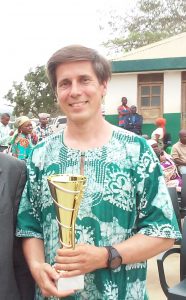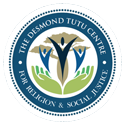 Describe your “connection” to the work and researchers of the DTCRSJ
Describe your “connection” to the work and researchers of the DTCRSJ
I have been in contact with the Centre practically from its very inauguration, with the relationship gradually intensifying. This is partly due to the fact that I am connected institutionally to the Centre through professorial siblingship. My Chair and the Desmond Tutu Chair are both donated by the same organization, the Lund Mission Society. Another reason for increasing level of cooperation is that I feel connected both to the way and contents of research and teaching at the Centre as well as theology and religious studies at the UWC at large. I have always related to the Centre staff and their approaches. Additionally, I have a family connection to Cape Town, which adds to mixture.
What are your current research, teaching and academic service projects?
In my latest book Context, Plurality, and Truth (2020), I sketch ways in which Christian theology should adjust itself to the end of the colonial/cultural imperialist/classicist era in which only a narrow selection of Christian traditions served as the yardstick. An impetus to these reflections has been acquainting myself to the Kimbanguist Church in Sweden and the DRC. All this is a continuation to my attempts to build methodological connections between theology and social/cultural anthropology (Faith in African Christianity: Bridging Anthropological and Theological Perspectives, edited with Karen Lauterbach, 2020). Yet another book in this cluster is the forthcoming one on contextual theologies edited with Sigurd Bergmann. My emerging area of research interest is to return back to where I began: the relationship between Christian theologising and politics, this time nationalism. I begin in Finland by studying the phenomenon in the grassroots but wish to expand the work to other countries, too.
How do you plan to use your new position to enhance research, teaching, and academic service between the Centre and your networks?
An official position at the UWC makes it possible for me to take responsibility in advising the Centre students – be they at MTh or PhD level. It also makes it smoother to conduct joint research-related activities in cases when having two universities is not an advantage. I wish to bring in my insights and contribution in between empirical and textual studies as well as constructive theology on one hand, and theology and social/political sciences on the other hand. Additionally, I want to use my position in between Europe and Africa to build connections and mutual enrichment.
In what way (s) do you feel your research examines the intersections of and overlaps between religion and social justice?
All my research has been on Christianity or relationships between Christianity and other faith traditions. The great majority of it has dealt with Africa. The backdrop of my research is always the question of justice – in relation to (neo)colonialism, cultural imperialism, political power, and hierarchies. For me it is important to argue for a form of Christianity that is internally just, inclusive and tolerant as well as working for these values in the wider society.
What advice can you offer post-graduate students and emerging scholars?
Concentrate on what you perceive as meaningful and personally important. In doing this, challenge your preconceived ideas and play the devil’s advocate against your dearest ideas and values. In this manner, you will contribute to the development of knowledge and argumentation in your area of interest. Life is complex, and only propaganda is simple. Your task is to bring clarity to the complexities of life without turning the resulting knowledge into propaganda.
Closing remarks
DTCRSJ is a very special organisation where activism for social justice meets rigorous academic standards. I always approach the Centre with curiosity and will to learn more. Teaching and research are not a one-way road but interaction that changes both the society and us. We do not only do research, but our research does us.
